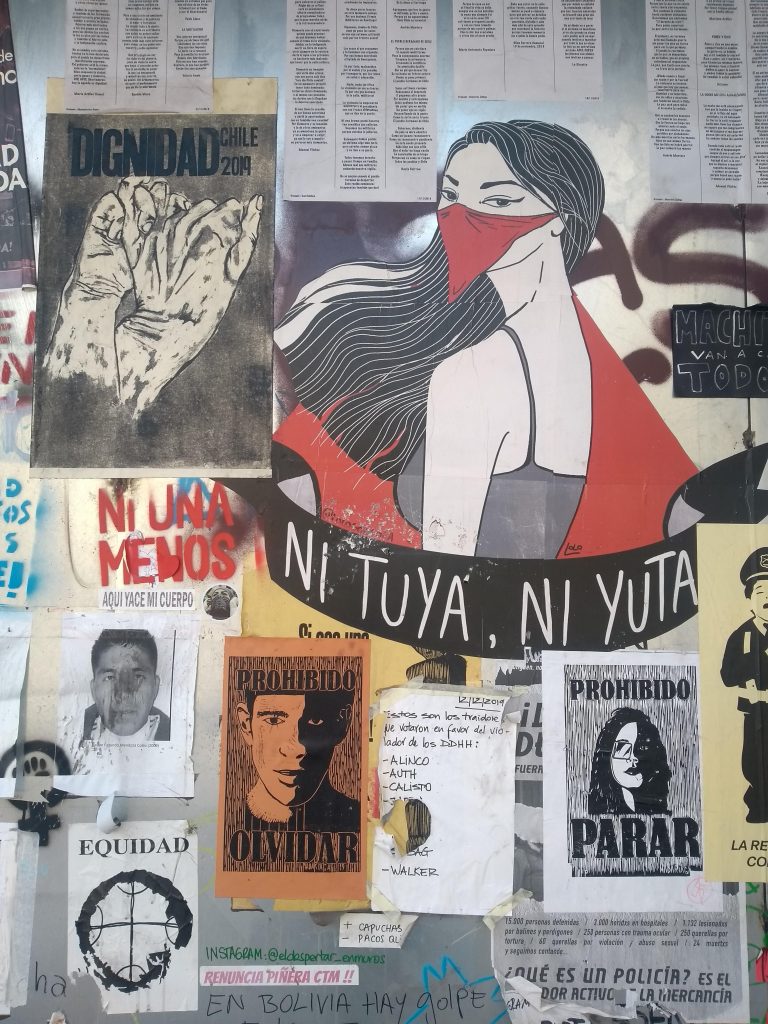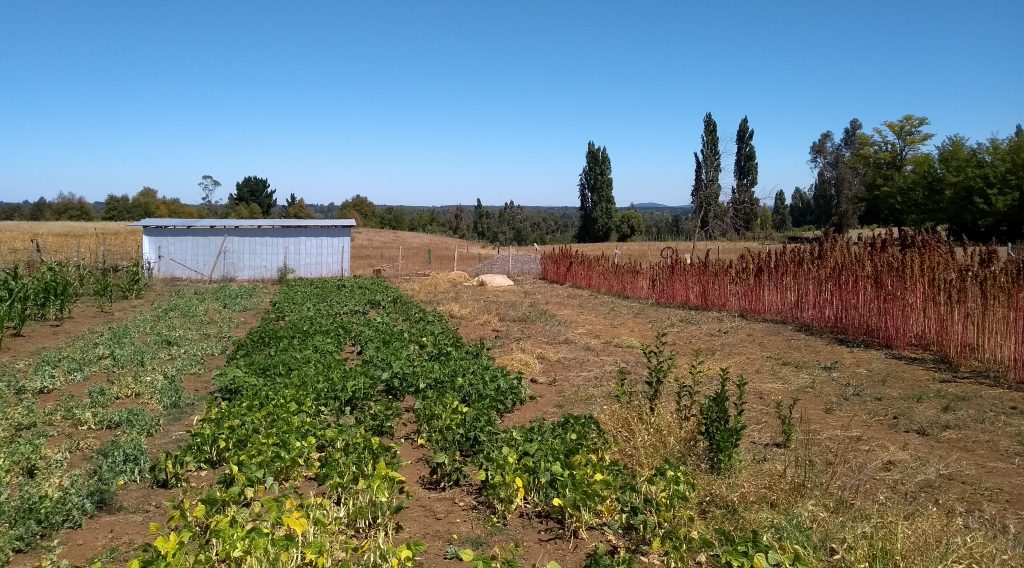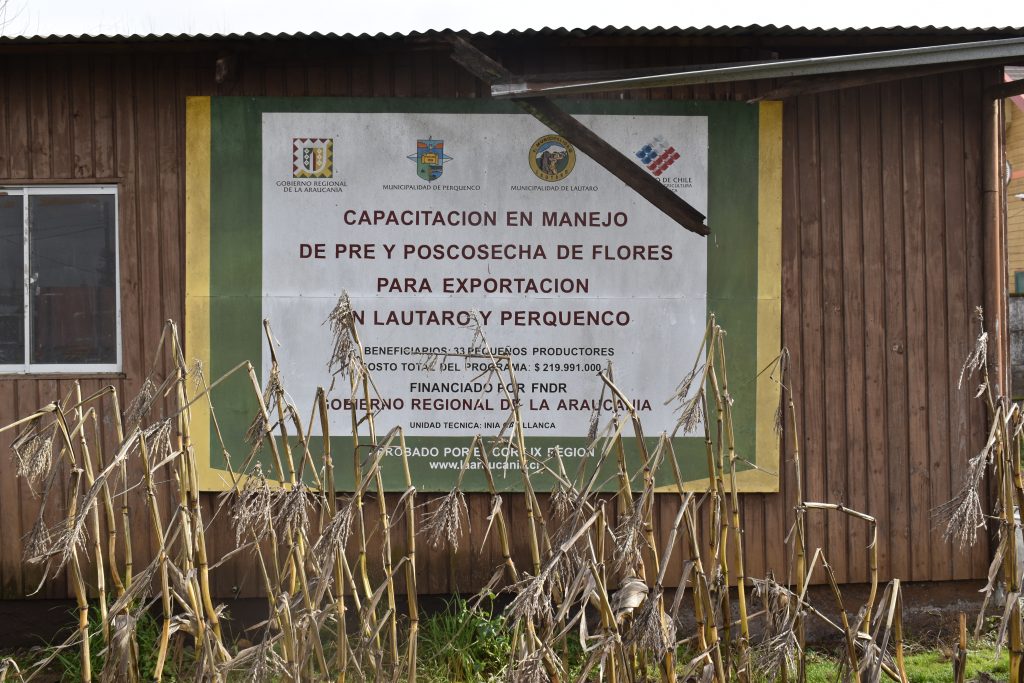Carlos Bolomey Cordova is a second-year PhD student at the CRE. He is researching the livelihoods of agricultural producers in southern Chile, and here, discusses how a hardcore neoliberal logic has shaped agriculture in the region in recent decades. He also reflects on how this relates to Chile’s upcoming constitutional referendum.
Social upheaval and a referendum
Towards the end of 2019, people across Chile took to the streets to protest the country’s hardcore neoliberal socioeconomic model – imposed by Augusto Pinochet’s dictatorship (1973 – 1990) and further consolidated by successive democratic governments.
Chile’s neoliberal rationale is reflected in the liberal free trade agreements it has signed with most of the world, as well as in an array of reforms that undermined the country’s social fabric. The latter have included the abandonment of both public education and public health, and the privatisation of natural assets such as water and copper.
When Chile embraced the global market, it became one of the most developed countries in Latin America. However, despite having the region’s second largest per-capita GDP, Chile also has staggering levels of inequality. This has been one of the primary drivers for the recent protests, during which many Chilean citizens have called for dignity and social justice.

Protest art in downtown Santiago
Photo credit: Carlos Bolomey Cordova
Protest art in downtown Santiago
Photo credit: Carlos Bolomey Cordova
In response to these protests, politicians have called a referendum on Chile’s 1980 Pinochet-era constitution, set to be held later this year. This brings the possibility of not only developing a democratically-written constitution, but also of setting boundaries to a fiercely neoliberal model under which private property is the central right and state interference in social life is kept to a bare minimum.
From grain to fruit: Neoliberalism and agriculture in southern Chile
Last winter I travelled from Newcastle to the ‘La Araucania’ region in southern Chile to undertake my fieldwork. Here I witnessed first-hand some of the contradictions underpinning the neoliberal rationale regarding agriculture.
When La Araucania was incorporated into the Chilean national territory in the 1880s, following a military occupation of Indigenous land, it became a region devoted to cereal production. However, farmers across the region are now switching their crops to fruits.
This transition has occurred because of two complementary drivers. Firstly, climate change has been expanding the temperate weather of central Chile southwards, making southern regions warmer and therefore more hospitable to fruit production. Secondly, public policies have encouraged farmers to adopt high-value crops such as berries, primarily for export.

As a result, many farmers have reaped the rewards of higher crop prices and access to export markets. They have been able to capitalise on Chile’s numerous free trade agreements, as well as its geographical location, which makes it a counter-seasonal producer in relation to the northern hemisphere. Yet, not every farmer in the region has benefitted.
Some farmers I spoke to at a local farmers’ market have not been able to grow berries because they do not have access to enough water to grow them (berry production typically requires significantly more water than grain production). This is partly a legacy of Pinochet’s constitution, which allowed for land and water to be considered as two separate ‘goods’. For instance, someone who owns property immediately next to a river cannot use water from that river if they have not bought the right to use it. The same problem arises when farmers dig wells: they must register these under the ‘Code of Water Management’, an expensive and bureaucratic procedure. Hence, many small farmers rely on rain water only, a system better-suited to grain production.
If access to water is not fairly distributed among farmers, those who are not able produce higher-profit crops, such as berries, often end up taking on work as wage labours or seasonal farmworkers. Within Indigenous communities, people are increasingly moving away from a highly diversified subsistence farming to selling their labour in the thriving (monocropping) fruit industry. In addition to locking people into a cycle of precarious work, this presents a threat to local biodiversity and the survival of traditional crops, as biodiverse subsistence plots give way to mono-cropped fruit fields.
Reliance on an export model compounds these issues, as producers become increasingly exposed to the fluctuations of the global market. While the government continues to implement schemes aimed at fostering the transition to an export-oriented mode of agricultural production, it disregards the fact that in the process, many producers’ livelihoods have become more precarious.

Photo credit: Carlos Bolomey Cordova
A large banner at the entrance of the local rural development office alludes to a previous pilot that sought to help producers to export flowers, illuminating the government’s export-oriented focus. One official said to me that the main problem with the ministry of agriculture is that they are obsessed with export. He added: “the government supports many niche initiatives, but these niches often die… it happened the same with the strawberry growers of an indigenous community here”.
It is crucial to reflect on how a neoliberal logic entails a specific way of addressing agriculture, generating a set of unintended outcomes that obscures those who are left behind by development. The upcoming referendum will shine a light on many of these issues. Some farmers see it as an opportunity to claim water as a common good that cannot be privatised, and to cast doubt on the neoliberal model that has relegated many of them to poverty. Others in the rural elite will fight to retain their water rights and their access to an export-oriented market. Certainly, this conversation will develop as the referendum approaches.
